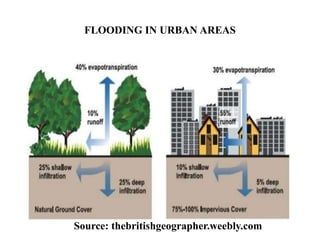How Urbanization Affects Natural Ecosystems
As cities continue to grow and expand, the impact on natural ecosystems becomes more pronounced. Urbanization brings about a myriad of changes to the environment, from loss of habitat for wildlife to increased pollution levels and disrupted water systems. In this article, we will explore the ways in which urbanization affects natural ecosystems and discuss potential solutions to mitigate these impacts.
Loss of Habitat
One of the most significant impacts of urbanization on natural ecosystems is the loss of habitat for wildlife. As cities expand, forests are cleared, wetlands are drained, and grasslands are paved over to make way for buildings, roads, and infrastructure. This destruction of natural habitats forces wildlife to either adapt to urban environments or relocate to more suitable areas, often resulting in population decline and increased competition for resources.
Fragmentation of Ecosystems
Urbanization also leads to the fragmentation of natural ecosystems, as contiguous areas of habitat are divided by roads, buildings, and other man-made structures. This fragmentation can disrupt wildlife migration patterns, gene flow between populations, and the overall functioning of ecosystems. As a result, species may become isolated and more vulnerable to extinction, leading to a loss of biodiversity.
Increased Pollution
With the growth of urban areas comes an increase in pollution levels, which can have devastating effects on natural ecosystems. Air pollution from vehicles and industrial sources can harm plants, animals, and humans alike, while water pollution from runoff and sewage can contaminate rivers, lakes, and oceans. This pollution can disrupt food chains, poison aquatic life, and degrade habitats, leading to a decline in biodiversity and ecosystem health.
Disrupted Water Systems
Urbanization can also disrupt natural water systems, such as rivers, streams, and wetlands, through the construction of dams, levees, and drainage systems. These alterations can lead to changes in water flow, sediment transport, and nutrient cycling, impacting the aquatic plants and animals that depend on these systems for survival. In addition, urban runoff can introduce pollutants and chemicals into waterways, further degrading water quality and ecosystem function.
Mitigating the Impacts of Urbanization
While the effects of urbanization on natural ecosystems are undeniable, there are steps that can be taken to mitigate these impacts and promote sustainable development. One approach is to incorporate green infrastructure into urban planning, such as green roofs, rain gardens, and permeable pavement, to help reduce pollution, manage stormwater, and provide habitat for wildlife. Another strategy is to create wildlife corridors and green spaces within cities to connect fragmented habitats and allow for the movement of species.
Education and outreach programs can also play a crucial role in raising awareness about the importance of preserving natural ecosystems and the benefits of biodiversity. By engaging with local communities, policymakers, and developers, we can work together to create a more sustainable future for both urban areas and the natural world.
Conclusion
Urbanization has profound effects on natural ecosystems, from loss of habitat and fragmentation of landscapes to increased pollution levels and disrupted water systems. However, by taking proactive measures to mitigate these impacts and promote sustainable development, we can help to preserve biodiversity, protect wildlife, and ensure the health of our planet for future generations. It is up to all of us to work together to find solutions that balance the needs of urban areas with the preservation of natural ecosystems, creating a more harmonious relationship between humanity and nature.


